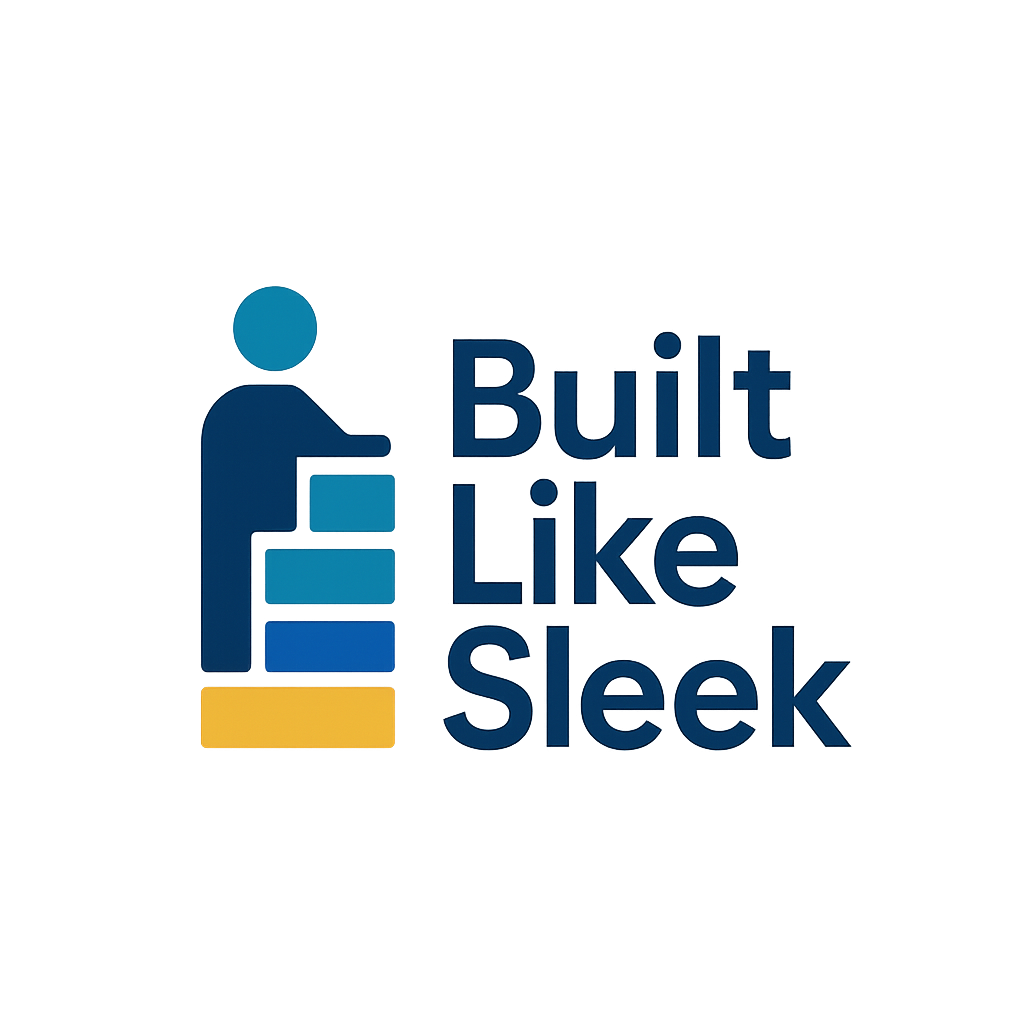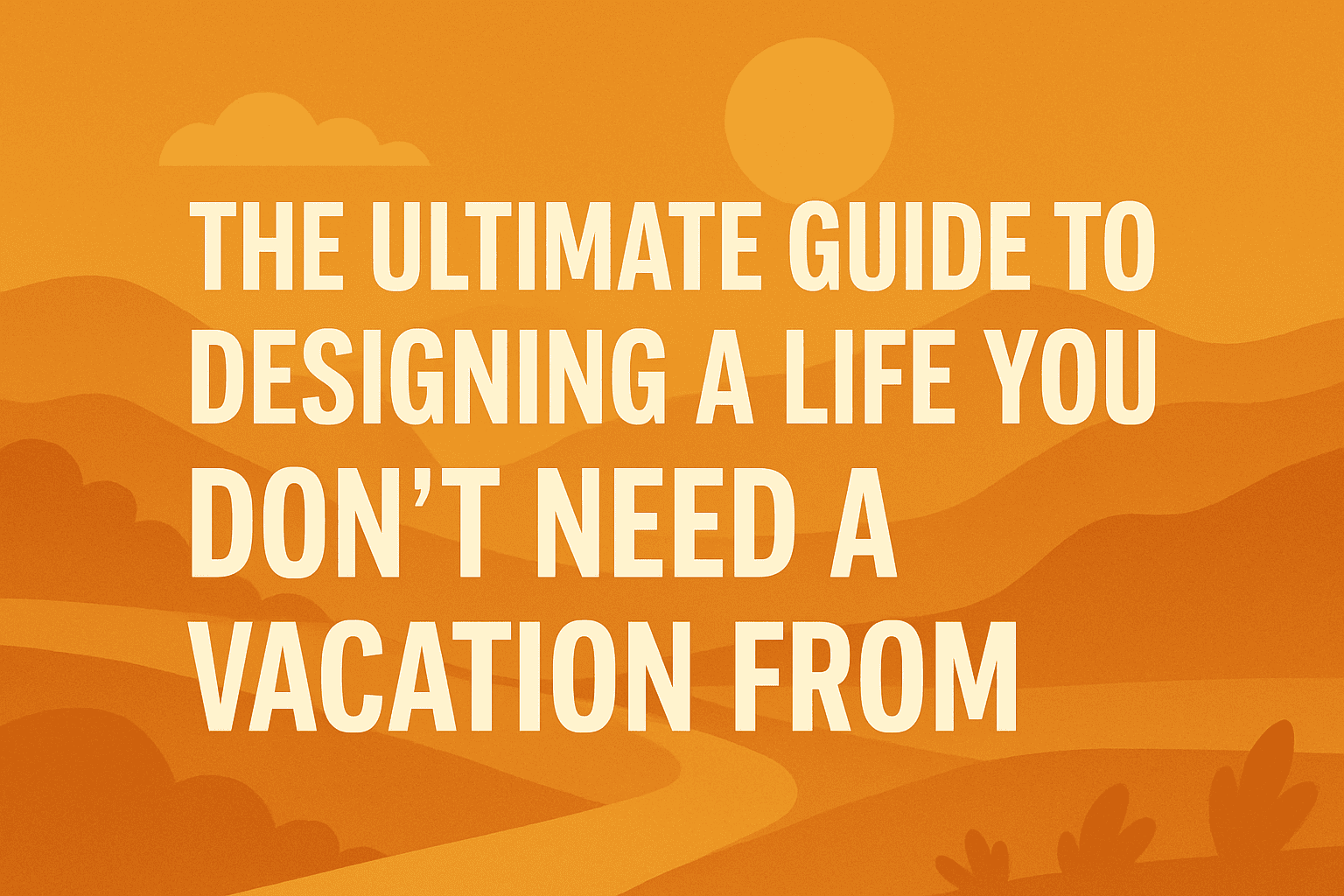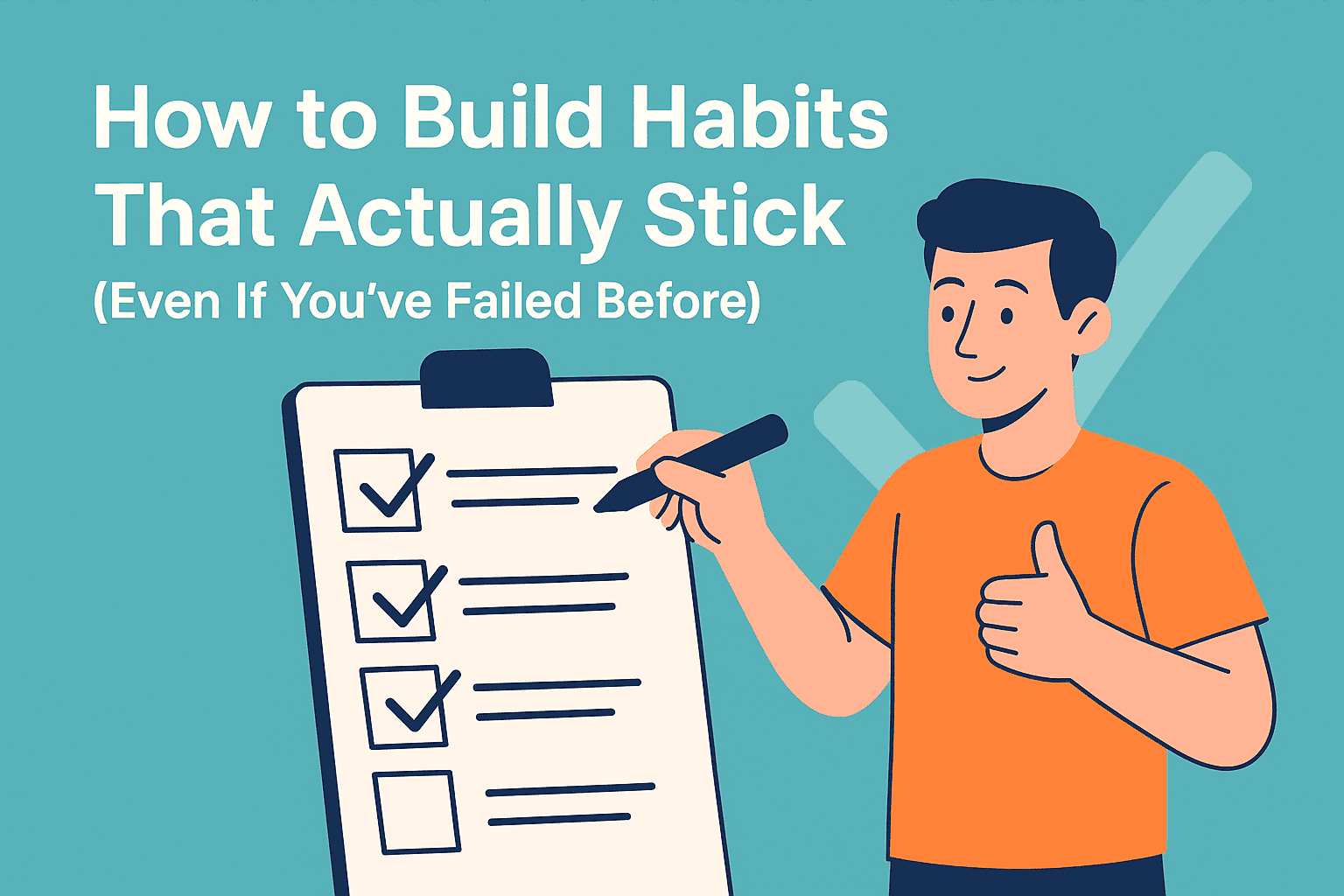If you’re constantly dreaming about vacations, here’s a hard truth—you don’t need an escape, you need a redesign. The endless countdown to your next getaway is a signal that your everyday life isn’t working. I’ve been there—grinding through workweeks for a few fleeting moments of joy. It’s exhausting, unsustainable, and frankly, no way to live.
But what if your daily life didn’t feel like something to run away from? What if it could feel purposeful, fulfilling, even fun? This guide will show you exactly how to build a life aligned with your values, energy, and goals. By the end, you’ll have practical strategies to create a day-to-day existence you don’t just tolerate—you love.
What Does It Mean to Design Your Life?
Designing your life is about making conscious decisions on how you live, work, and spend your time. It’s the opposite of “default living,” where you wake up, go through the motions, and wonder where the years went. Default living leads to burnout, dissatisfaction, and a sense of stuck-ness. Life design, in contrast, puts you in the driver’s seat.
Here’s the key—it’s not about chasing society’s definition of success. Forget the six-figure salary or the Instagram-worthy lifestyle. Designing your life means defining success on your own terms and aligning your daily actions to get there.
Ask yourself—what does a good life mean to you? Chances are, it’s not rooted in superficial benchmarks but in something deeper. That’s where we’ll start.
Step 1 – Get Clear on What You Want
Without clarity, you’re just throwing darts in the dark. The first step is figuring out what’s not working and what you really want.
Reflect on What’s Not Working Right Now
Grab a notebook and perform a quick life audit. What feels off? What’s draining you? Use these prompts to dig deeper:
- Where is my time going?
- How’s my energy throughout the week?
- What’s my relationship with money like—stressful, neutral, empowering?
- Am I satisfied with my health, relationships, career, and daily routine?
By identifying the bottlenecks, we’ll know where to focus your redesign efforts.
Imagine Your Ideal Day
Now, flip the script. What would a dream day look like? Be brutally specific. Picture where you’d wake up, what you’d do first, who you’d spend time with, and how your evening would unfold. Use sensory details to make it real—what does your “dream life” sound, smell, and feel like? Describing this will give you a powerful vision to work toward.
Identify Your Core Values and Priorities
Your values are your compass. They keep you grounded and help streamline your choices. To identify them, think about what genuinely matters to you—not what you think should matter. Here’s a quick starter list:
- Family
- Creativity
- Freedom
- Health
- Adventure
- Contribution
Pick 3-5 core values and use them as guiding principles for every decision moving forward.
Step 2 – Create a Vision That Pulls You Forward
Having a vague idea of what you want isn’t enough. You need a clear vision that excites you.
Write Your Mission Statement
Translate your ideal day into a personal life mission statement—a paragraph that captures what you’re working toward. For example:
“I’m creating a life where I wake up energized, work on projects that light me up, and have plenty of time for family, friends, health, and adventure.”
Revisit and refine this statement regularly. It’ll serve as your North Star when life gets messy.
Step 3 – Align Your Habits with Your Future Self
Big visions are built on small, consistent habits. It’s not flashy, but it works.
Design Systems, Not Just Goals
Goals are great for direction, but systems create results. Instead of vague resolutions (e.g., “Be more productive”), implement structured systems like:
- Habit stacking: Pair new habits with existing routines (e.g., meditate after brushing your teeth).
- Calendar blocking: Pre-plan your ideal week and stick to it.
- Accountability tools: Apps like Notion, Habitica, or digital trackers can keep you on track.
Let Go of What’s Draining You
Freeing up capacity requires cutting out the dead weight. Look at your schedule—what tasks, commitments, or habits drain your energy? Start replacing them with boundaries and habits that energize you.
Examples:
- Ditch mindless scrolling and swap it for a morning walk.
- Say no to obligations that don’t align with your values.
- Limit interactions with toxic people and build healthier connections.
Step 4 – Redesign Your Work and Income
How you earn a living should fit around your life, not force you into constant compromise.
Explore Alternative Paths
Breaking out of traditional 9-to-5 setups is more achievable than you think. Whether it’s freelancing, remote work, side hustles, or creative projects, the options for flexible income streams are endless. Experiment until you find what works.
Build Income Around Your Ideal Lifestyle
Think of your income as a tool—it should enable your vision, not hinder it. If travel excites you, aim for remote-friendly income streams. If family time matters most, look for part-time or local opportunities that maximize your availability.
Step 5 – Make Your Environment Match Your Ambitions
Your surroundings play a crucial role in shaping behavior. Set yourself up for success on three fronts:
- Digital: Use task managers, Notion dashboards, or time-blocking apps to create structure.
- Physical: Keep your workspace clean and uncluttered for focus. Add small cues (like a vision board or motivational quotes) to reinforce action.
- Social: Surround yourself with people who inspire and challenge you. Join communities aligned with your goals and values.
Step 6 – Create Your Dream Weekly Routine
Break your dream life into manageable pieces. A great starting point? A dream weekly routine.
Time Block Your Days
Divide your week into distinct “time blocks” for deep work, rest, hobbies, and planning. A sample:
- Monday-Wednesday: Focus on core work/projects.
- Thursday-Friday: Networking, errands, creative time.
- Weekends: Rest, family, outdoor fun.
Adjust this template based on your priorities, and track how it feels over time.
Real-Life Case Study: My Life Before vs. After Redesigning It
Before my switch, I was in full survival mode—uninspired, reactive, and overwhelmed. Nights were spent binge-watching TV to disconnect. Weekends felt like a fleeting escape.
After implementing the steps above? My days are intentional and joy-filled. I create, connect, and rest without guilt. I’m living proof this works, and I want the same for you.
Tools I Use to Stay on Track
Here are the tools I swear by to maintain focus and momentum:
- Notion: Keeps my goals, habits, and vision organized.
- Google Calendar: Non-negotiable for structuring my time.
- Journals: For reflection, planning, and keeping my mental game strong.
- Time-tracking apps: Like Toggl or Clockify to audit where time actually goes.
Final Thoughts: You Don’t Need Permission to Reinvent Your Life
There’s no “right time” to start. The perfect moment isn’t coming—it’s now. Take one small step today, whether it’s reflecting on what’s not working or writing your mission statement. Progress isn’t linear, but with consistent effort, you’ll get there.
I’ve created a free Dream Life Planner Template to help you organize your vision and plan your next steps. Download it here and join my email list for weekly insights on designing the life you want. What’s your biggest block right now? Reply and share—I’d love to help.



